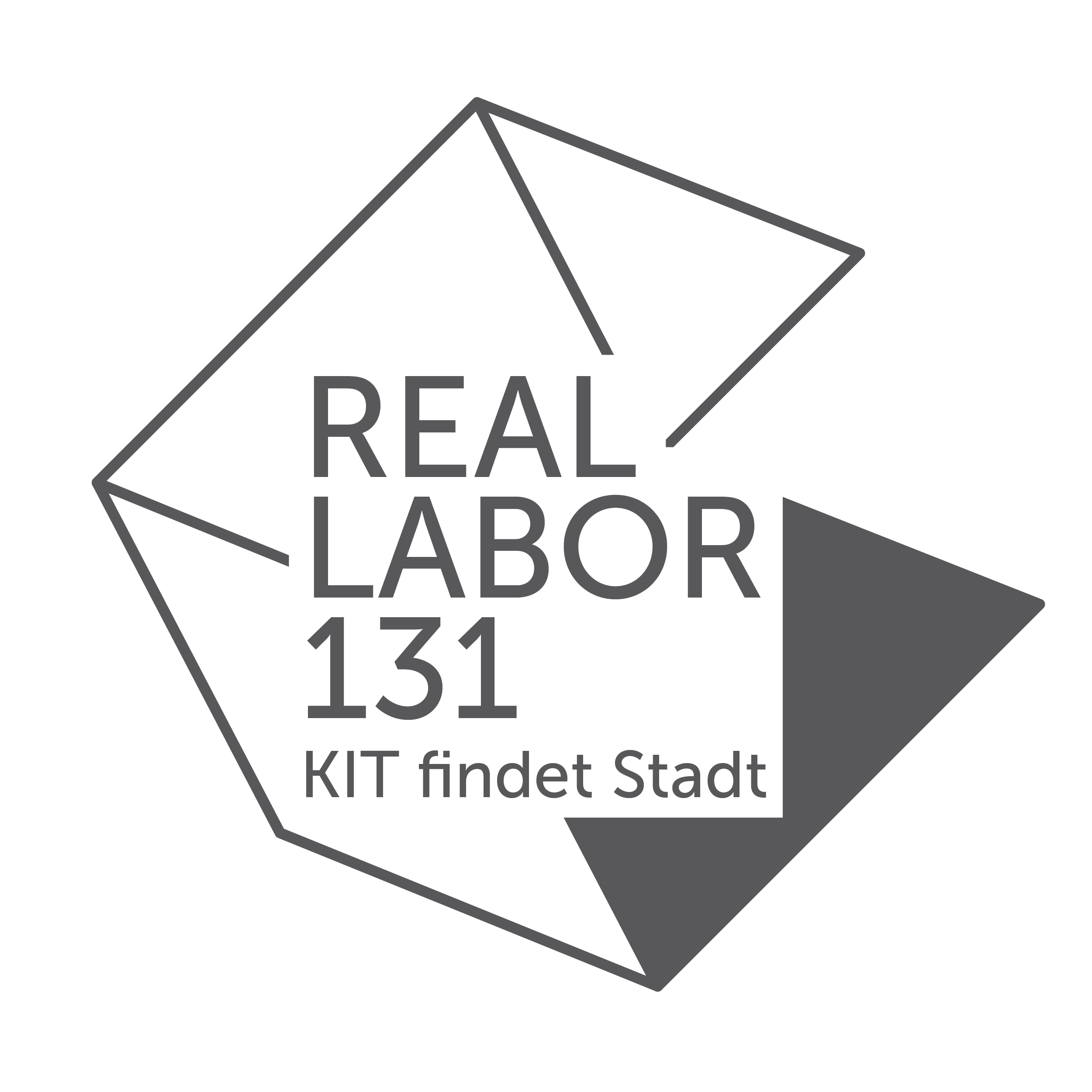Reallabor 131: KIT findet Stadt
- contact:
Survey: Elias Naber
Energy Concept: Kai Mainzer
-
project group : - funding:
Ministerium für Wissenschaft, Forschung und Kunst Baden-Württemberg - IQF-Programm „Reallabore, BaWü-Labs, für eine Forschung für Nachhaltigkeit in Baden-Württemberg“
- partner:
IIP, EIFER, IfV, ÖÖW, IEB, ECON, ZAK, fbta, FSM, ISS, EKUT, IESL, KSN, lokale Akteure
- startdate:
2015
- enddate:
2018
The way we organize our life in the cities is a crucial determinant of the success of sustainable development. Against this background, the Karlsruhe Institute of Technology (KIT) establishes the "Urban Transition Lab 131" (R131) to integrate science, innovation, and urban development into a transdisciplinary process with citizens and other local actors (cf. WBGU 2011). This process addresses the district level which is especially suited since the residents identify themselves with their neighborhood and are thus more committed. The common societal objective of the actors of the Urban Transition Lab is to initiate and consolidate a comprehensive sustainable development of Karlsruhe's Oststadt, including a targeted advancement of the adjacent KIT itself. Its scientific goals are the generation, provision, and testing of the respective knowledge of systems, targets, and actions required for a sustainable transformation of existing cities and districts. Therefore practical goals together with research and educational aims represent the triangle of objectives of the Urban Transition Lab 131.
The Urban Transition Lab focuses on four topics, identified as the bottom line of two different perspectives: the objectives of Karlsruhe's citizens which were developed in a participatory process on the one hand and the expertise of KIT on the other hand.
Energy concept in the district Oststadt
Mobility and consulting
Social networks and aspects of urban planning
Sustainable consumption
The IIP is involved in the basal (inter-)disciplinary tasks. In the subproject data collection data aggregation is main objective. Furthermore in a secondary data analysis, residential buildings and the respective stakeholders are analyzed concerning energy efficiency and modernization potentials.
The goal on the one hand is a high detail GIS based depiction of the buildingstock and on the other hand an analysis of players and constellation of players concerning energy efficiency in residential buildings.
Additionally technical, content-related and legal questions of such a complex data collection, data processing and problem-oriented data evaluation shall be examined and solved.
The Urban Transition Lab 131 belongs to the KIT Center Humans and Technology, an interdisciplinary institution which bundles the activities of more than 20 KIT institutes to address the interdependencies between science/technology and society. The project core team is located at ITAS. The Urban Transition Lab is based on and embedded in the activities of the framework project "District Future – Urban Lab" which provides preliminary works and a solid base for the specific tasks of the Urban Transition Lab 131.
More information on the structure of the Urban Transition Lab and the focus of the R131 projects can be found here:
Poster: Structure of Urban Transition Lab 131 (PDF)
Poster: Overview Sustainability Experiments (PDF)
Poster: Participation on the way to Urban Transition Lab 131 (PDF)
Poster: European sustainable energy week 2017
Press releases:
http://www.quartierzukunft.de/doppelkauszeichnung-fuer-r131/
https://www.nachhaltigkeitsrat.de/presseinformationen/pressemitteilungen/detailansicht/artikel/zukunft-gestalten-67-nachhaltige-projekte-ausgezeichnet/


